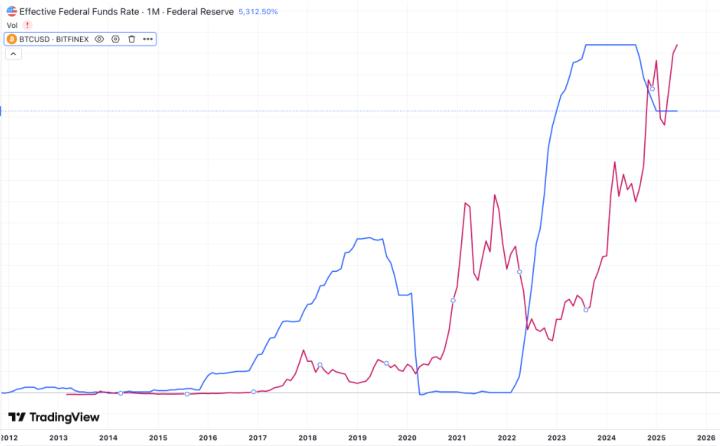1. Event Overview
In early July 2025, the law firm Pomerantz filed a class-action lawsuit against Strategy in the U.S. Federal District Court for the Eastern District of Virginia on behalf of all individuals and entities who purchased or otherwise acquired Strategy (formerly MicroStrategy, NASDAQ ticker: MSTR) securities between April 30, 2024, and April 4, 2025.
The lawsuit, based on Sections 10(b) and 20(a) of the Securities Exchange Act of 1934 and SEC Rule 10b-5, demands that Strategy and some of its senior management be held legally responsible for alleged securities fraud related to Bitcoin investment profitability data and accounting standards, and seeks to recover investment losses. In an era where crypto assets are gradually becoming an important part of corporate strategic asset allocation, this lawsuit may become a significant signal for regulators and market participants to re-examine crypto asset accounting and information disclosure standards.
2. Strategy's Bitcoin Strategy
Strategy, originally a software company focused on enterprise-level business intelligence (BI), cloud-based services, and data analysis, had long provided data visualization, report generation, and decision support tools for large enterprise clients. Despite its reputation in the traditional software industry, its growth was slow, with relatively stable revenue and profit performance.
Starting in 2020, under the leadership of founder Michael Saylor, the company officially established a Bitcoin-centric asset allocation strategy, positioning it as the primary reserve asset alternative to cash. This transformation marked Strategy's significant investment in the Bitcoin market through multiple rounds of financing. The company not only used its own funds to purchase Bitcoin but also obtained low-cost capital through convertible bonds, senior notes, and Bitcoin-collateralized loans to amplify its investment scale. Since then, Strategy has transformed from a simple enterprise software company to a leveraged Bitcoin financial company.
The core of its Bitcoin strategy is long-term holding. Strategy clearly stated that it would not actively sell its assets but instead use Bitcoin's long-term appreciation potential to enhance the company's total assets and market value. Since entering 2024, the company continued to buy Bitcoin during its significant price recovery, especially accelerating purchases after it broke $60,000. In the first quarter of 2024 alone, the company added over 12,000 Bitcoins, accumulating more than 200,000 Bitcoins by early 2025, further strengthening its "Bitcoin-based" corporate image and making its stock price highly correlated with Bitcoin's trend, becoming a notable alternative crypto asset vehicle in the capital market.

3. Core Aspects of the Allegations
The core allegations in the lawsuit are that Strategy and its executives released several false and/or misleading statements or failed to fully disclose key information, primarily including: (1) exaggerating the expected profitability of the company's Bitcoin investment strategy and capital operations; (2) not adequately revealing the risks associated with Bitcoin price fluctuations, especially potential significant losses from crypto asset fair value changes after adopting the accounting standards update (ASU2023-08); therefore, (3) the company's public statements were materially misleading at all critical time points.
Analysis reveals that the core allegations focus on two aspects: first, false or misleading statements about the profitability of its Bitcoin investment strategy, and second, failure to timely disclose the significant impact of new accounting standards and downplaying related risks.
On one hand, the lawsuit argues that the company made false and misleading statements about the profitability of its Bitcoin investment strategy, violating federal securities laws. As a publicly listed company, Strategy is responsible for accurately reflecting the actual contribution of Bitcoin investments to the company's profitability in its financial reports and public announcements. However, the company is accused of exaggerating the positive financial effects of Bitcoin in multiple external communications, obscuring its actual reliance on book gains from price appreciation rather than the sustainable profitability of its core business. Simultaneously, the company may have used adjusted non-GAAP indicators or positive language to portray earnings prospects, concealing the real financial pressure from crypto asset price volatility. Such behavior, if constituting false statements about material matters, could potentially violate Section 10(b) of the Securities Exchange Act of 1934 and SEC Rule 10b-5.
On the other hand, Strategy is also accused of not timely and adequately disclosing its financial information according to the ASU2023-08 accounting standards revision. At the end of 2023, the Financial Accounting Standards Board (FASB) officially passed new accounting treatment standards for crypto assets, stipulating that enterprises from the 2025 fiscal year (after December 15, 2024) can measure Bitcoin and other crypto assets at fair value and directly reflect fair value changes in the income statement, while also allowing early adoption of the standard.
The plaintiffs argue that, combining false statements and insufficient disclosure, Strategy failed to fulfill its legal obligations for information disclosure as a listed company during the critical time window, thereby misleading investors and causing actual economic losses.
4. Main Contents and Challenges of ASU 2023-08 Accounting Standards
ASU 2023-08, released by FASB in December 2023, marks a significant transformation in accounting treatment of crypto assets under US Generally Accepted Accounting Principles. This standard applies to interchangeable crypto assets meeting specific conditions, requiring enterprises to measure them at market price during each reporting period, recognize value changes in current net profit, and separately disclose related information in financial statements. The new regulation takes effect for fiscal years starting after December 15, 2024, with early adoption permitted. The standard introduces more detailed disclosure requirements, including crypto asset types, quantities, fair value, restriction information, and period changes, enhancing financial report transparency and consistency. In brief, ASU 2023-08 raises higher requirements for corporate compliance capabilities and risk management while improving accounting information quality.
Previously, FinTax conducted a specialized analysis of ASU 2023-08 accounting standards. For crypto enterprises, adopting ASU 2023-08 as an accounting standard may generate the following impacts: improving financial statement transparency, simplifying accounting processing procedures, changing tax and capital structures, and facing regulatory risks of non-GAAP indicators. Strategy, with bitcoin investment as its core strategy, had not previously adopted fair value accounting methods, instead using a cost impairment accounting model for bitcoin accounting, classifying its large bitcoin holdings as intangible assets. Under this accounting model, Strategy only needed to recognize impairment when prices dropped, with no price appreciation unless assets were sold. On April 7, 2025, the company disclosed $5.91 billion in unrealized losses in SEC filings, subsequently explaining in May quarterly financial press releases and conference calls that losses resulted from bitcoin price decline valuation adjustments. As the plaintiff argued, this delayed disclosure weakened investors' ability to judge the company's true financial condition and risk exposure during collective litigation, constituting a significant information omission.
5. Conclusion
Overall, the collective lawsuit facing Strategy highlights the dual pressures faced by listed companies in information disclosure and compliance monitoring against the backdrop of rapid crypto asset development.
On one hand, as enterprises incorporate bitcoin and other crypto assets into their financial structures, their profitability, asset volatility, and financing models are highly dependent on market conditions. Any external statements that fail to fully reflect real risks may easily trigger legal risks of omission or misleading representations.
On the other hand, with the new accounting standards passed by FASB in late 2023 gradually being implemented, enterprises must reflect crypto assets at fair value in financial statements and proactively evaluate their systematic impacts on asset valuation, profit volatility, and disclosure obligations. Failure to timely and accurately explain the nature and scope of this accounting system change on financial conditions may constitute substantial investor expectation misrepresentation.
Therefore, this case not only concerns individual responsibility investigation but may also serve as an example of listed companies balancing disclosure obligations and strategic publicity within compliance boundaries under crypto asset accounting standard reforms.








